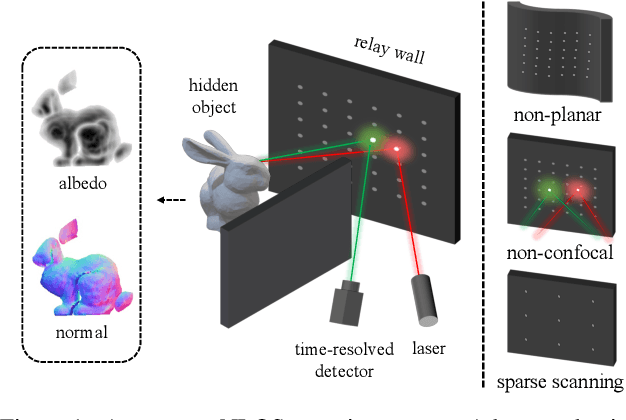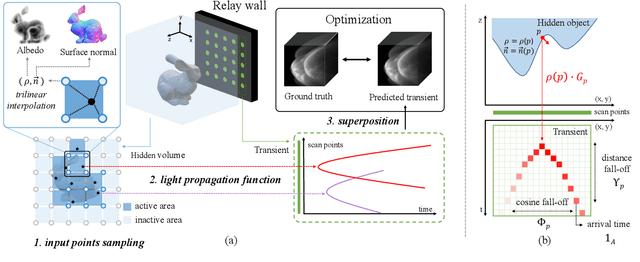Domain Reduction Strategy for Non Line of Sight Imaging
Paper and Code
Aug 20, 2023



This paper presents a novel optimization-based method for non-line-of-sight (NLOS) imaging that aims to reconstruct hidden scenes under various setups. Our method is built upon the observation that photons returning from each point in hidden volumes can be independently computed if the interactions between hidden surfaces are trivially ignored. We model the generalized light propagation function to accurately represent the transients as a linear combination of these functions. Moreover, our proposed method includes a domain reduction procedure to exclude empty areas of the hidden volumes from the set of propagation functions, thereby improving computational efficiency of the optimization. We demonstrate the effectiveness of the method in various NLOS scenarios, including non-planar relay wall, sparse scanning patterns, confocal and non-confocal, and surface geometry reconstruction. Experiments conducted on both synthetic and real-world data clearly support the superiority and the efficiency of the proposed method in general NLOS scenarios.
 Add to Chrome
Add to Chrome Add to Firefox
Add to Firefox Add to Edge
Add to Edge